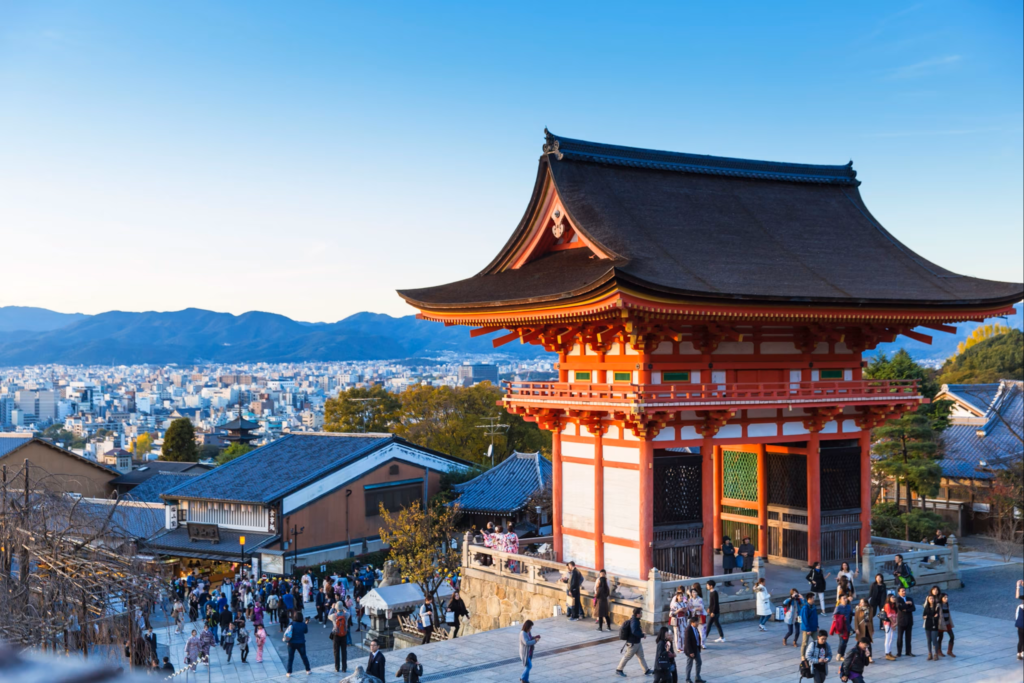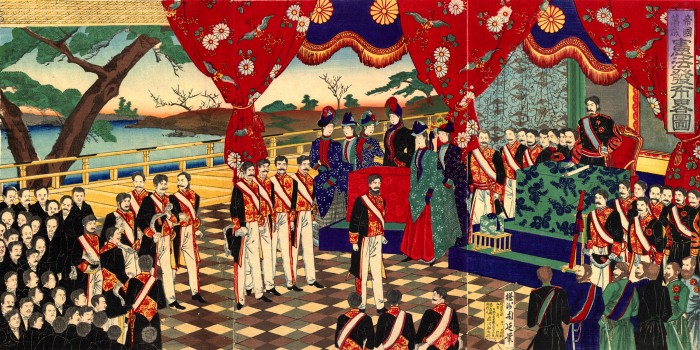Traveling in Japan offers a unique opportunity for Japanese language learners to immerse themselves in the language and culture. Here are some top destinations that provide rich cultural experiences, language practice opportunities, and beautiful sights:
1. Tokyo
Why Visit:
- Language Practice: Tokyo is a bustling metropolis where you can practice everyday Japanese in various contexts, from ordering food to navigating public transport.
- Cultural Experiences: Visit historical sites like the Meiji Shrine and the Asakusa district, and modern attractions like Shibuya Crossing and Akihabara.
- Language Schools: Numerous language schools and cultural exchange events provide opportunities to improve your language skills. India’s Top Japanese Language Institute Nihonkai
Highlights:
- Shibuya and Shinjuku: Experience the energy of the city and practice conversational Japanese in shops and restaurants.
- Ueno Park: Visit museums and enjoy seasonal events, perfect for practicing reading and listening skills with informational plaques and guides.
2. Kyoto
Why Visit:
- Traditional Culture: Kyoto is the heart of traditional Japanese culture, offering a plethora of temples, gardens, and historical sites.
- Language Practice: Engage with locals in a more relaxed environment compared to Tokyo, perfect for practicing formal and polite Japanese.

Highlights:
- Kinkaku-ji (Golden Pavilion): Learn about Japanese history and Buddhism.
- Gion District: Experience traditional tea houses and possibly see geisha, enhancing your understanding of Japanese etiquette and cultural norms.
3. Osaka
Why Visit:
- Dialect Exposure: Osaka is known for its distinct Kansai dialect, providing an opportunity to understand regional variations in Japanese.
- Culinary Adventure: Famous for its street food, you can practice ordering and interacting with vendors.
Highlights:
- Dotonbori: Vibrant nightlife and food scene where you can practice casual Japanese.
- Osaka Castle: A historical site offering insights into Japan’s feudal past and opportunities to read historical information in Japanese.
4. Hiroshima
Why Visit:
- Historical Significance: Visiting Hiroshima offers a deep understanding of Japan’s history and peace movement.
- Language Practice: Interacting with locals and museum guides can enhance your listening and speaking skills.
Highlights:
- Hiroshima Peace Memorial Park: Learn about World War II and practice reading detailed exhibits in Japanese.
- Miyajima Island: Famous for the Itsukushima Shrine, offering picturesque views and traditional Japanese architecture.
5. Sapporo
Why Visit:
- Winter Activities: Famous for its snow festival and winter sports, providing unique vocabulary and cultural experiences related to winter activities.
- Local Cuisine: Enjoying local dishes like ramen and seafood allows for practical language use.
Highlights:
- Sapporo Snow Festival: Participate in a major cultural event with numerous opportunities to practice Japanese.
- Odori Park: A beautiful park in the city center where you can practice reading signs and interacting with locals.
6. Nara
Why Visit:
- Historical Sites: Nara offers a wealth of ancient temples and landmarks, ideal for history enthusiasts and language learners interested in historical vocabulary.
- Interact with Nature: Known for its friendly deer, offering a more laid-back atmosphere for practicing Japanese.
Highlights:
- Todai-ji Temple: Home to the Great Buddha statue, providing historical and religious context.
- Nara Park: Interact with locals and tourists, practicing conversational Japanese in a relaxed setting.
7. Fukuoka
Why Visit:
- Gateway to Kyushu: Fukuoka is a vibrant city with a mix of modern and traditional attractions.
- Cultural Festivals: Participate in local festivals like the Hakata Gion Yamakasa, enhancing your cultural and language experience.
Highlights:
- Canal City Hakata: A large shopping and entertainment complex where you can practice daily conversational Japanese.
- Fukuoka Castle Ruins: Learn about Japanese history and enjoy beautiful views of the city.
8. Okinawa
Why Visit:
- Distinct Culture: Okinawa has a unique culture and language influenced by its Ryukyu Kingdom history, offering a different perspective on Japanese culture.
- Beach Paradise: Combining language learning with relaxation on beautiful beaches.
Highlights:
- Shurijo Castle: Learn about Okinawan history and its relationship with mainland Japan.
- Churaumi Aquarium: One of the largest aquariums in the world, offering educational exhibits in Japanese.
9. Nagasaki
Why Visit:
- Historical Significance: Like Hiroshima, Nagasaki offers deep historical insights, particularly related to the atomic bomb and international trade.
- Cultural Diversity: The city’s history of foreign influence provides a unique cultural mix.
Highlights:
- Nagasaki Peace Park: Learn about the history and significance of peace efforts.
- Glover Garden: Explore the foreign influence in Nagasaki’s history and practice reading historical descriptions.
10. Kanazawa
Why Visit:
- Preserved Edo-period Districts: Experience traditional Japanese culture in well-preserved historical districts.
- Art and Crafts: Known for its traditional arts and crafts, providing vocabulary related to Japanese arts.
Highlights:
- Kenrokuen Garden: One of Japan’s most beautiful gardens, offering a tranquil environment for language practice.
- Higashi Chaya District: Explore traditional tea houses and interact with locals in a historical setting.
By visiting these destinations, Japanese language learners can immerse themselves in different aspects of Japanese culture, practice their language skills in real-life situations, and deepen their understanding of the nuances of Japanese society.





